Living On The Fringe: Sad, Sorry World Of Sokoto’s Almajirai
Their days are characterised by activities that include begging for alms and several more degrading experiences.
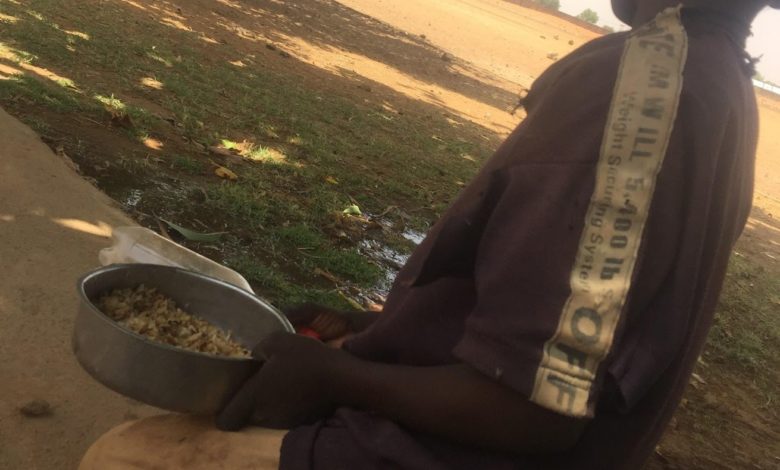
Salisu*, a young boy not older than six or seven years old, retreated under the shade of a mango tree from the scorching Sokoto sun in April 2021 when this reporter met him. Salisu’s face is marked by an obvious hunger and his eyes wear a longing for comfort.
A native of Zabarmawa, he has a vague memory of home but remembers how his parents dumped him in an Almajiri school. Since then, he only goes home during Eid celebrations.
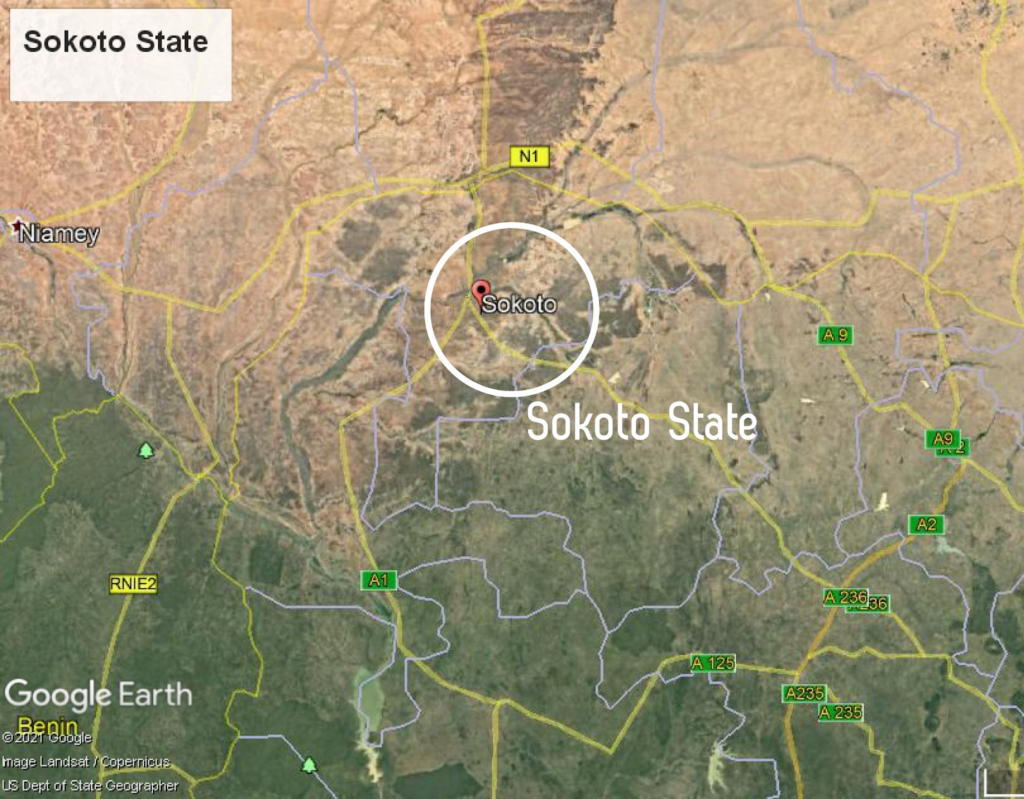
“We are between 100 and 150 in the Almajiri school, and we recite the Qur’an every morning,” he said, adding that, “the Mallam doesn’t cook for us. My parents bring food, garri for me, at least every week, in a sack. We usually give it to Mallam. Sometimes, they will bring it together with pure water.”
Like Salisu, Adamu* looked hungry too. Light-complexioned with a piercing look, the 13-year-old’s father is a farmer and his mother, a trader. He was brought into the Almajiri system at age 10.
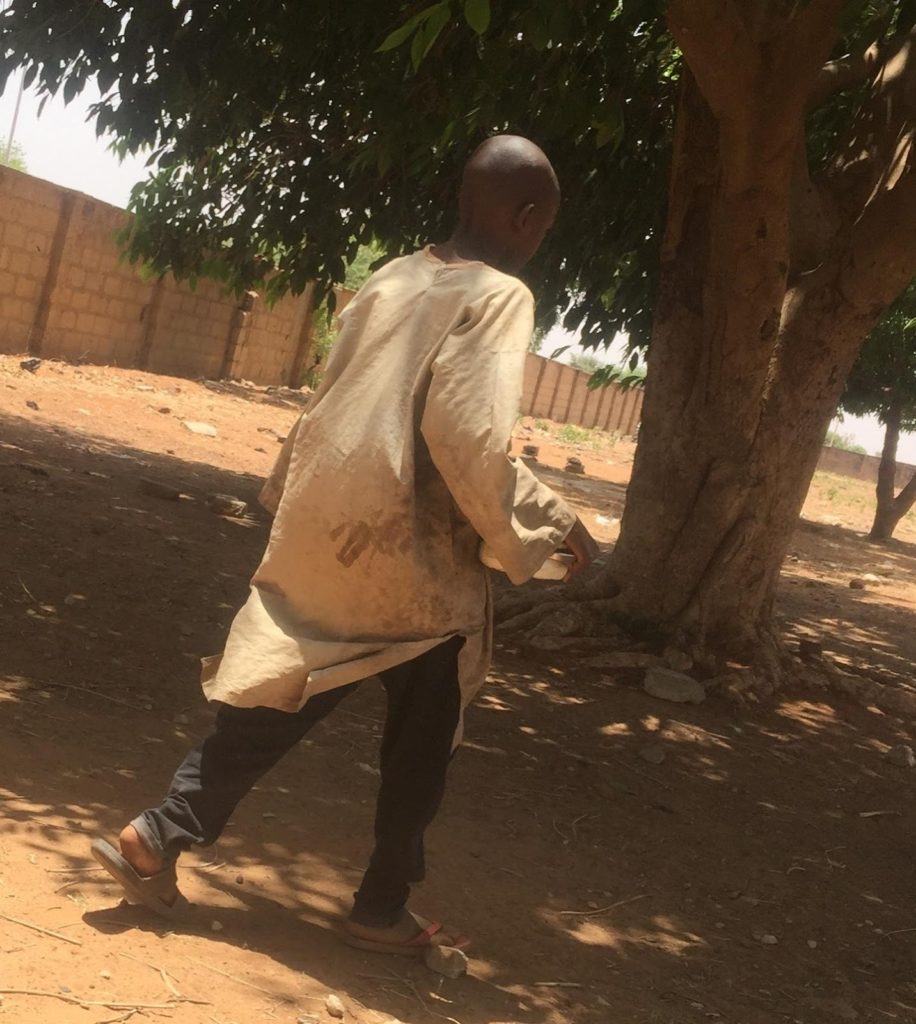
A native of Tuluwa in Sokoto, Northwest Nigeria, Adamu and his colleagues rely on begging to survive because their Mallam hardly gives them food. When they are not out begging, they fetch water for their Mallam’s household’s use.
“During the rainy season, we go to our Mallam’s farm. Sometimes, the rule is that if you don’t go to the farm, you won’t be given food,” Adamu revealed.
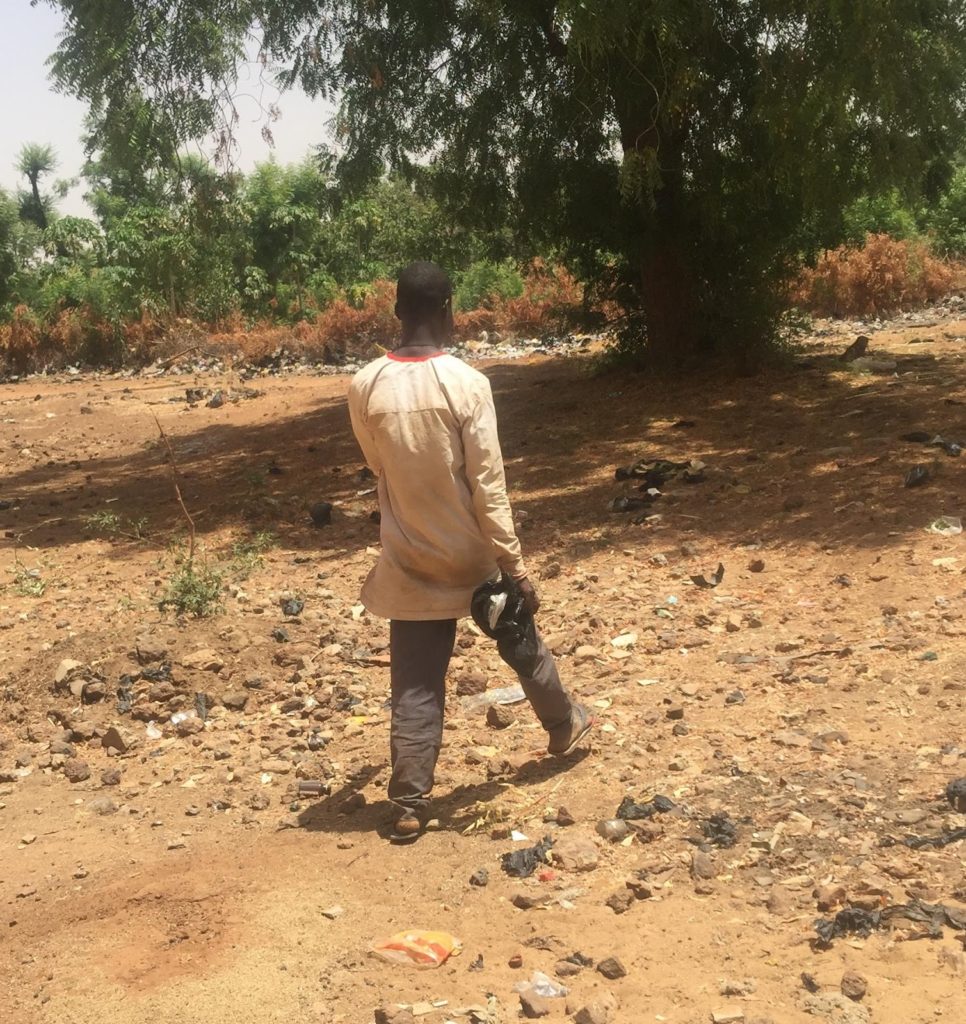
Another boy, Abban* looked hungry at first glance. Although he is much older and looked like he was in his early 20s, he persistently complained of hunger. This sounded odd given his age and the season: it was the Muslim Holy month of Ramadan and his lamentation elicited questions concerning his observance of the fast.
In response, he said he was not fasting because he had not taken the pre-dawn meal (Sahur).
Abban disclosed that there are about 200 boys under the tutelage of his Mallam, including him, and they survive on handouts: the clothes they wear, the food they eat are donations from private individuals and Non-Governmental Organisations (NGOs).
According to Abban, the more you give your Mallam, be it food or cash earned on your begging tours, the more love you earn from him. When asked why he is not going to school despite the free education, he said, “my father didn’t put me there.”
He, however, added that after leaving Almajiri school, he intends to start a business and get married, or become a soldier or security guard.
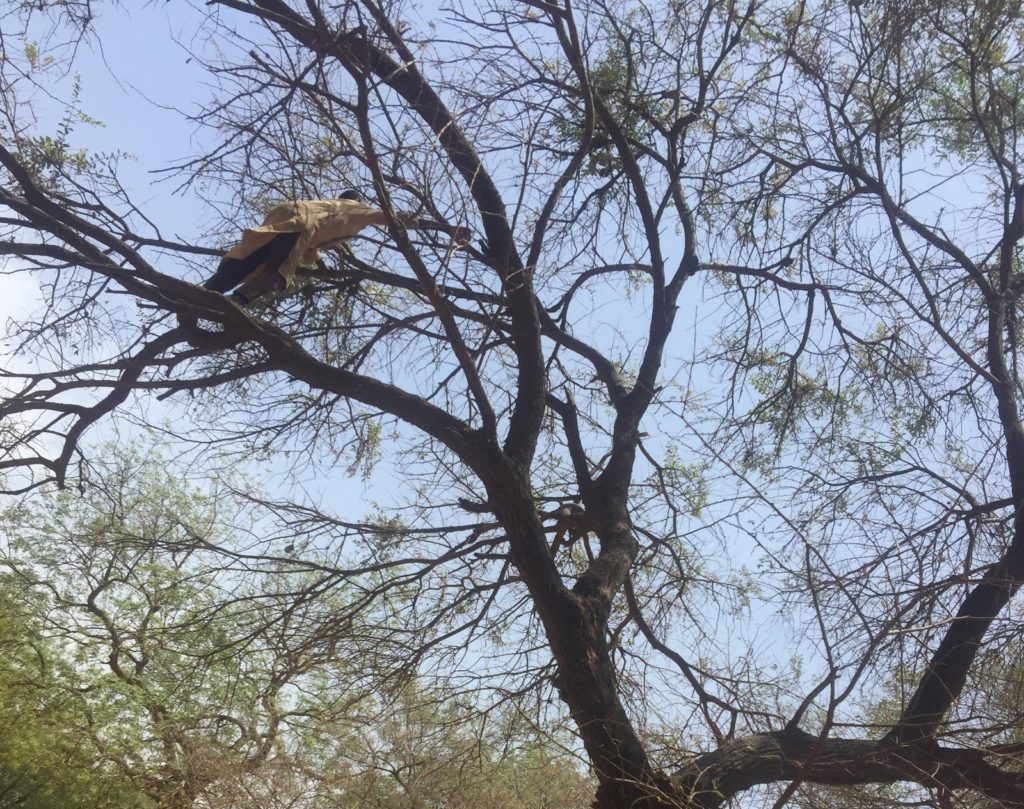
Nigerian law on child rights
Under Islamic law, parents are responsible for their children, including providing appropriate (formal and Islamic) education. The Child’s Right Act (2003) guarantees the rights of all children in Nigeria. However, currently, 11 states, all in northern Nigeria, are yet to domesticate the Child’s Rights Act. These children, especially Almajiri children, are bearing the brunt of this inaction.
The National Bureau of Statistics (NBS), last year, released the “2019 Poverty and Inequality in Nigeria” report, which highlights that 40 per cent of the total population, or almost 83 million people, live below the country’s poverty line of N137,430 per year.”
“Moreso, fewer than half of the children in mainly Muslim northern Nigeria attend overcrowded government primary schools, official data from 2015 shows. Almajiri schools help fill the gap and parents pay as little as N500 ($1.30) a month in fees.”
Issues revolving around the practice of Almajiri include child destitution, child trafficking and alms seeking.
Meeting Mallam Muhammad
Mallam Muhammad is the owner of one of the Almajiri schools in Sokoto, named Makaranta Muhammadiya. “I believe God will give me a reward for what I’m doing,” he said, adding that he doesn’t know the number of boys in his school. “Their parents come to check on them sometimes. After they finish and leave here, they will go and start a business. They can only leave here if God wishes; God is their timer.”
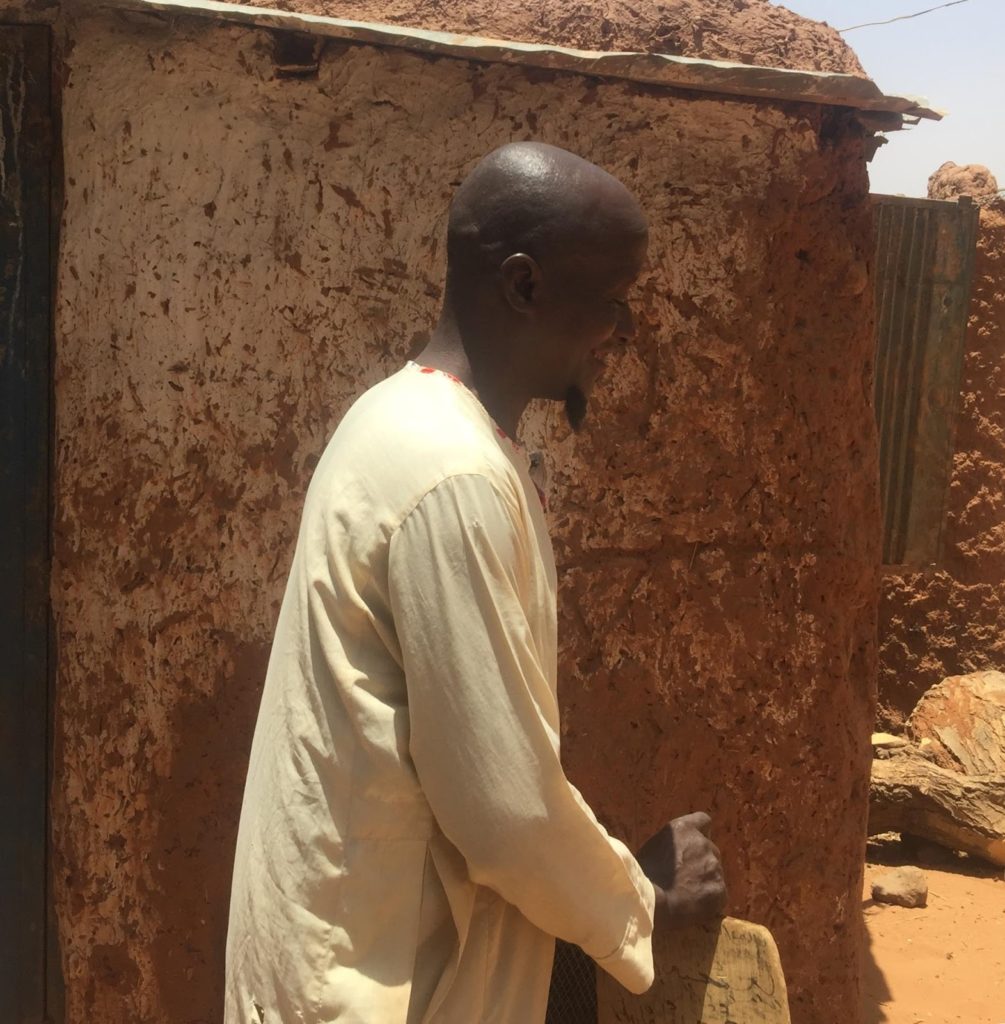
According to him, “I have a farm but I’m not eating it with them. They come with their own foodstuff. The government doesn’t bring food, except God. Even if you come (join us), God will give you food.”
Muhammad stated that the government does not have a stake in the Almajiri system, stressing that it is an age-long practise that has stood the test of time.
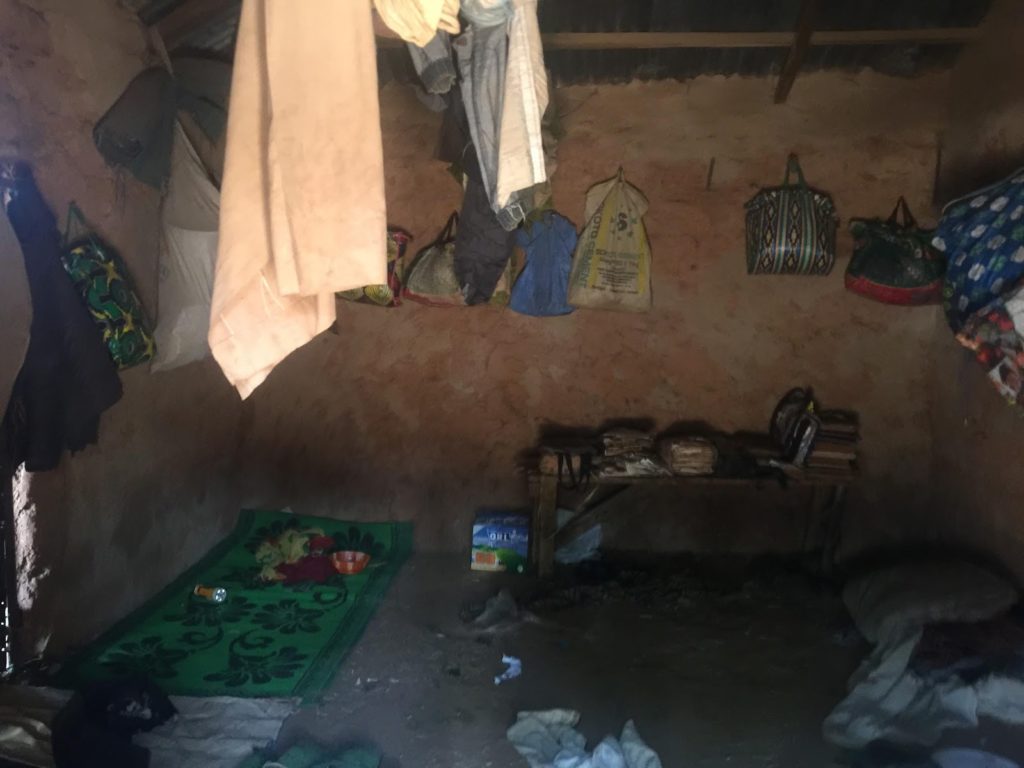
Almajiri system, a faded legacy?
The Almajiri system of education, which dates back to the 11th century, is an Islamic school system with a long history in Northern Nigeria. Under the Sokoto Caliphate, the Almajiri regime was solidified by the Islamic revolt of the 18th century. This educational system focuses on Quranic and Islamic education, with students learning a trade for a living, too. Schools were governed under the Sokoto Caliphate, and teachers reported directly to the Emir of their province.
Teachers, parents, officials, and the community as a whole raised the schools’ students. Students farm and take food to the school to complement the Almajiri scheme. It was a course in the region’s society and culture, similar to conventional education, where students were taught the Islamic and northern Nigerian way of life.
Now, most of these children are lacking access to conventional education. According to a UNICEF study in 2014, Nigeria has 9.5 million Almajiri children, accounting for 72 per cent of the country’s out-of-school children. Estimates in 2019 revealed that Nigeria has between 13.2 million and 15 million out-of-school children, the majority of whom are in Northern Nigeria.
On the UNICEF website, it is estimated that “In northeastern and northwestern states, 29 per cent and 35 per cent of Muslim children, respectively, receive Qur’anic education, which does not include basic skills such as literacy and numeracy. The government considers children attending such schools to be officially out-of-school.”
Nowadays, most of the students, known as Almajirai, learn to be self-reliant. Which leads them to beg for alms and engage in menial work. Sometimes, they are made to engage in forced labour. In 2019, the International Labor Organization (ILO) revealed that nearly half of Nigerian children are ‘enslaved.’
According to the ILO, at least 43 per cent of the country’s children are trapped in child labour, including in private businesses, despite international conventions prohibiting it.
Children as divine gifts
Reacting to the situation, Safiyyah Mohammed, a Sokoto-based lawyer and lecturer of the Department of Public Law and Jurisprudence, Faculty of Law, Usmanu Danfodiyo University, Sokoto, explained why the problem keeps evolving.
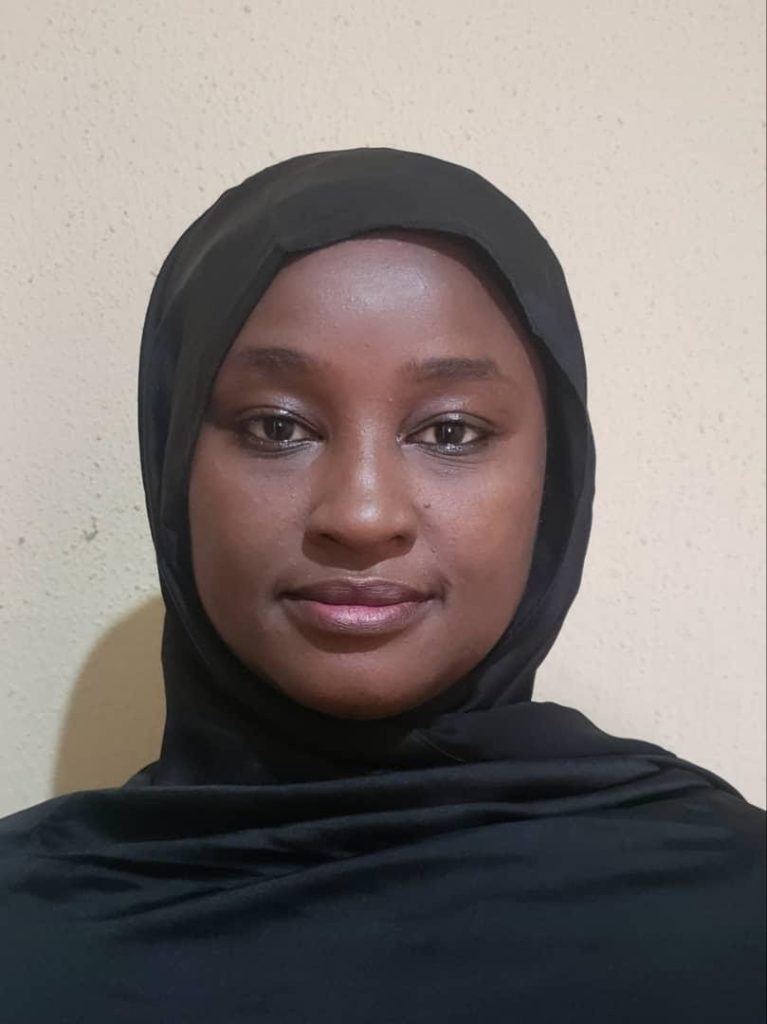
On the part of the government, she said, there are a lot of issues regarding the implementation of policies and laws and how to ensure that parents abide by the laws set out in our statutes. She said, “we have the Universal Basic Education (UBE) law, which provides that children must be sent to school but then we have issues of not being able to keep track of children whether they are in school or sent to other states. So it becomes difficult.”
Safiyyah argued that “there are differences between Western and Islamic cultural values,” lamenting that most of these Mallams are not thinking about the danger of setting up schools without regulations.
“We are bound to have issues because we don’t know the qualifications of most of these Mallams,” she said, adding that one of the key issues regarding the implementation of policies and laws is the attitude of citizens and attitude of individuals as it plays a major role in how the laws are being implemented and carried out.
She said, several decades ago, the way Almajirici was practised was “something noble for a good cause. But the way it is practised now, parents use it as a way to get away from their responsibilities because when you see the issue of people sending their children to faraway places without any means of income, sometimes it is a recipe for a lot of ill in the society.”
“Islamic law comprehensively gives children adequate rights. Children under Islamic law are what they called Amana; they are a gift from God Almighty, so they are to be treated in the best of ways. There is nothing that justifies children being sent out for Almajirici and being made to fend for themselves at such a young age.” She expressed emphatically.
Work done seems futile
Zainab Yunusa, a co-convener and assistant field officer with Almajiri Child Right Initiative (ACRI) Sokoto Chapter, explained how the organisation has been implementing its mission on the eradication or reformation of the Almajiri system, reiterating some difficulties on the part of the state government. The ACRI is a non-governmental organization initiated by Muhammad Sabo Keana, advocating for the reformation of the Almajiri system in Nigeria.
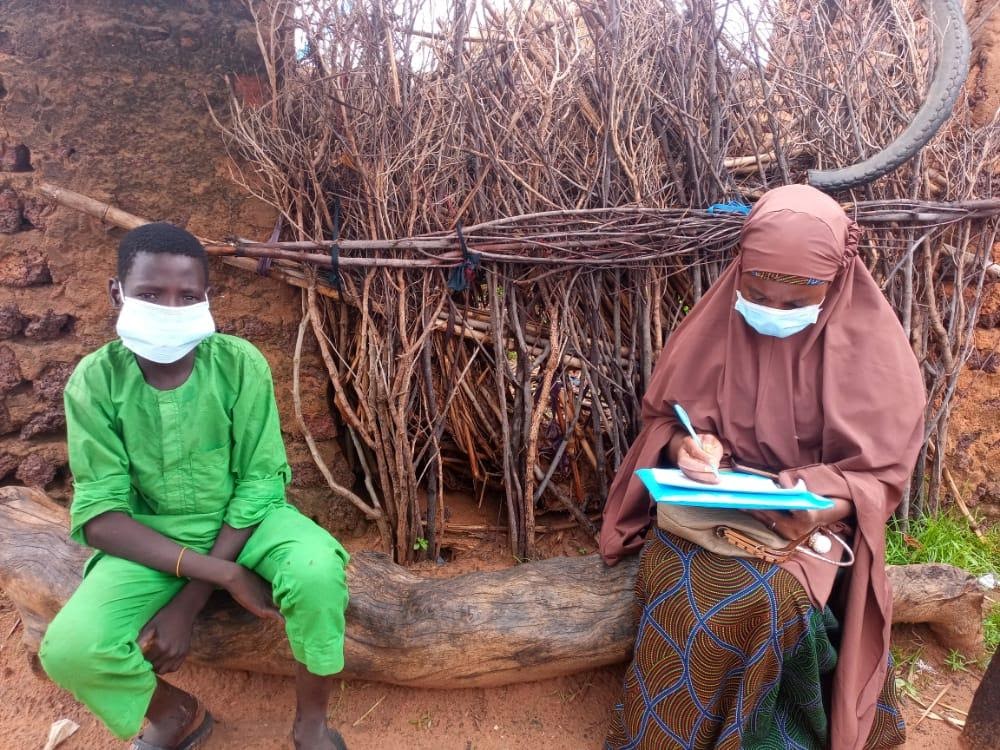
According to Yunusa, the organisation has been embarking on community sensitisation to concerned parents, hosting rallies and conferences, rendering services ranging from medical outreach, food, shelter among others. She revealed the organisation has been working tirelessly with the ministry of women and children affairs in tracing, documenting, and reintegrating the children back to their parents.
Saddened by the state government’s delayed response regarding this issue, Zainab said that, “the State government cannot be precise when it would end because it has to do with religion and culture…and many mistake its reformation for abolition. So, work done seems zero.”
During the course of this story, all effort to reach the state government and ministry of women and children affairs proved abortive, albeit when the Sokoto State Commissioner for Youth and Sports, Honourable Bashir Gorau, was contacted, he said he was not in the right position to respond to questions stressing that all queries should be channelled to the right authorities.
Names have been changed to protect the identity of the children.
This Investigative Report is supported by Orodata Science.
Support Our Journalism
There are millions of ordinary people affected by conflict in Africa whose stories are missing in the mainstream media. HumAngle is determined to tell those challenging and under-reported stories, hoping that the people impacted by these conflicts will find the safety and security they deserve.
To ensure that we continue to provide public service coverage, we have a small favour to ask you. We want you to be part of our journalistic endeavour by contributing a token to us.
Your donation will further promote a robust, free, and independent media.
Donate HereStay Closer To The Stories That Matter

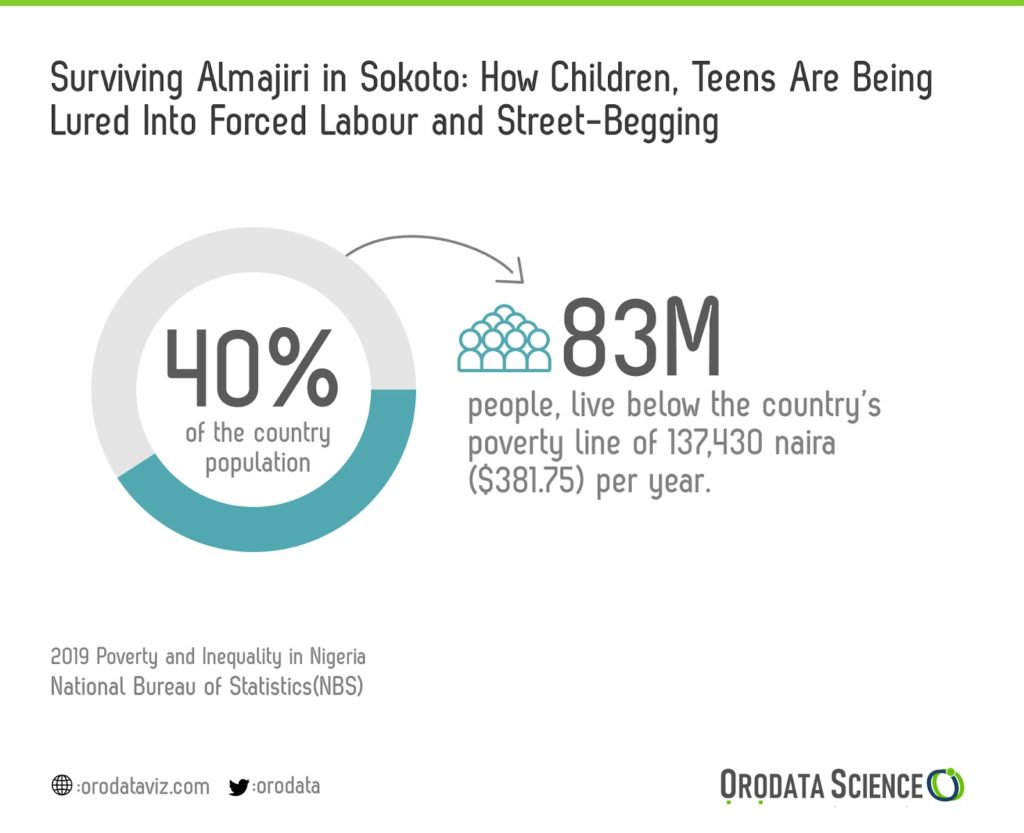
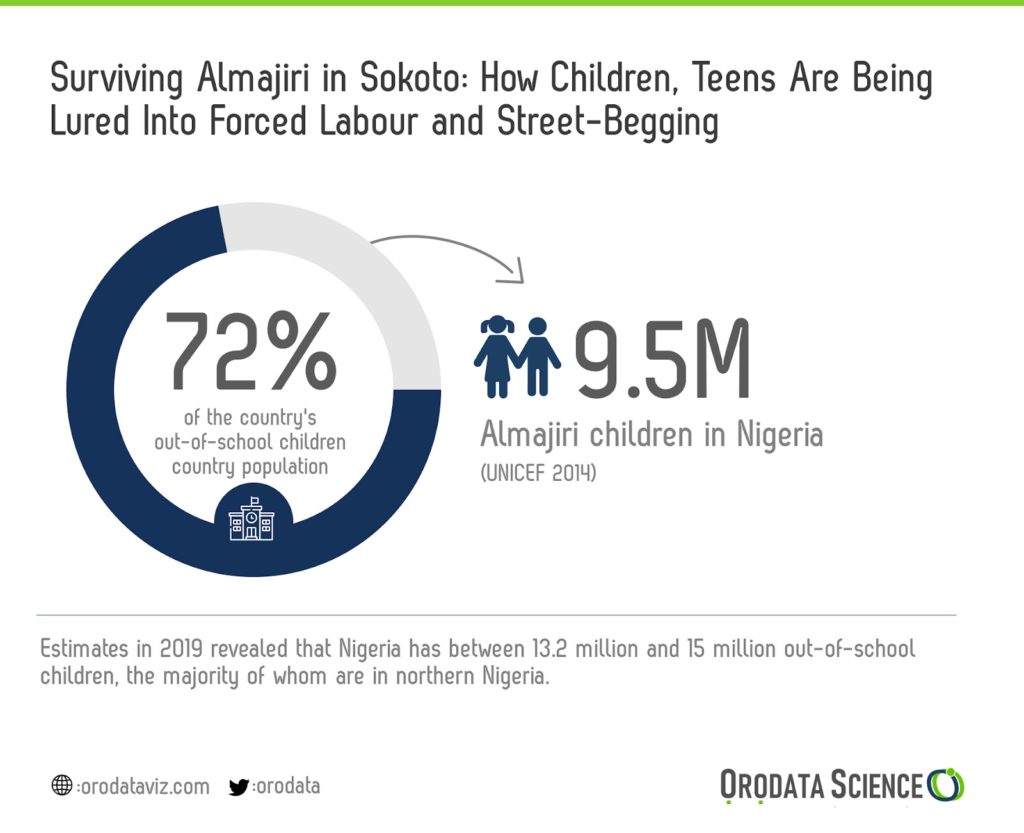
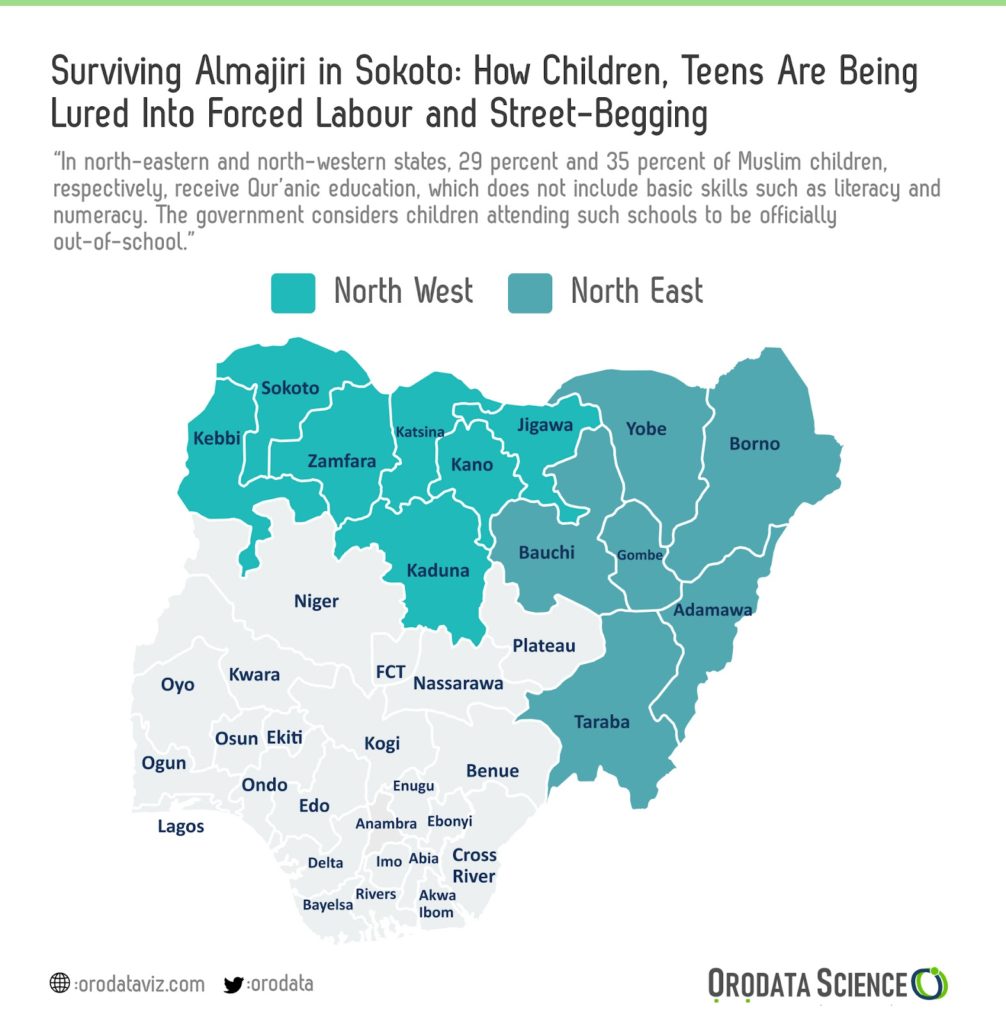


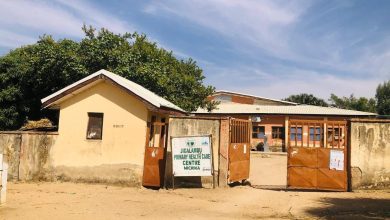

This well penned!
More greese to ur elbows,and more knowledge.